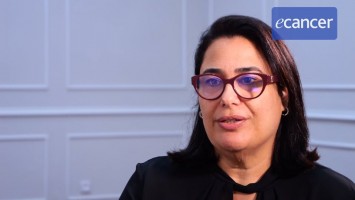I’m presenting the epidemiological burden of cancer. With cancer there are 14 million new cancer cases each year and 8 million cancer deaths. So it’s really important to understand the geographical distribution of these cancer incident cases and cancer deaths because they are not the same for every country in the world. The differences between countries allow us to generate hypotheses on what might be causing these cancer differences, specifically genetic differences and risk factor differences such as smoking and obesity.
What were your findings?
Well we found quite a big difference in the burden of cancer between countries. For example, with lip, oral cavity and pharyngeal cancers we noticed that lip cancers are much more common in Australia as well as Europe. This is due to two reasons. With Australia, lip cancers are due to sun exposure but in Europe it’s due to people resting their cigarettes on their lips while they smoke which causes a heat transfer and causes cancer to develop on the lip.
Where will you take this research in the future?
The reason why we’re doing this is to look at the differences between countries. These differences, if they’re not genetic and they are due to risk factors, you can potentially intervene by increasing taxation of tobacco, through promoting healthy diets and weight loss. By doing this you can reduce the unnecessary burden of cancer in these countries that are related to these risk factors.
What steps have you taken so far to reduce these factors?
The research that we perform is part of a bigger picture of research. We perform the cancer surveillance part. There are also other researchers who then take that information and then implement research looking at different policies. Governments will implement different policies to reduce cancer in different countries such as increasing tobacco tax. Other researchers will look at whether or not that tobacco taxation has an effect on lung cancer.
Are you working with other organisations to achieve these goals?
Yes, so as part of IARC we work with various different organisations who look at different policies as well. They look at the cost effectiveness of these policies and what the effects of them are. Specifically, we’ll work with organisations such as the World Health Organisation which we are a part of.
How do you get your message to reach a large audience?
We find it’s very difficult to disseminate this knowledge to the general public. It’s often very complex and it’s very hard to understand. Even when it’s a simple message such as ‘alcohol is a carcinogen’, it’s difficult to get the message out there. With alcohol in particular, many people don’t know it’s a carcinogen and therefore they don’t know by engaging in heavy drinking they are at a higher risk of cancer.
What’s the take-home message?
The take-home message of the research that I do is that the burden of cancer is unnecessarily high due to various risk factors. These risk factors can be reduced through individual methods such as; clinicians giving advice to their patients; people taking it on themselves to reduce the risk factors, so losing weight, not smoking, cutting down on their alcohol consumption; and governments through increases in taxation and public education programmes.
Could you tell us more about the summer school and its benefits?
This summer school is a benefit to me as well as the students that are coming here. All too often we go to conferences and they’re focussed on specific areas. When they are not focussed on specific areas what happens is we usually go to the conference presentations we like. But this conference itself is focussed on translational research. So by interacting with scientists in other areas we are able to generate hypotheses and translate the research that other people have done on the bench to more population health where I am. Therefore, we can make a huge impact on cancer as well as speed up the process of the translational research.
